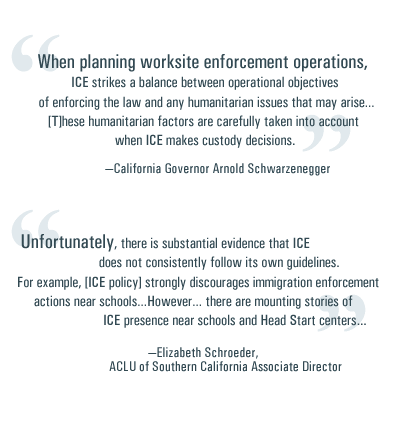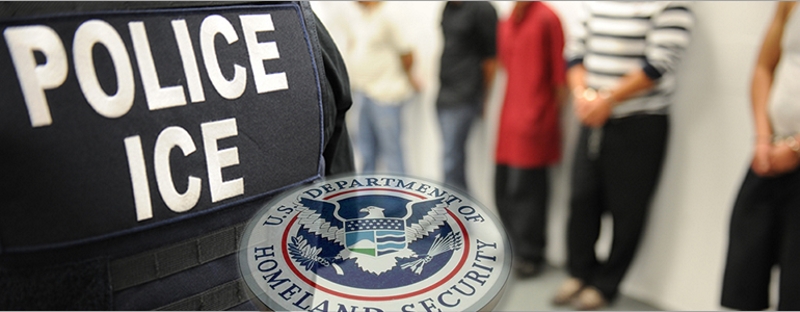Immigration Enforcement Raids
Read an article about immigration enforcement raids here
Background
Since 2003, the former Immigration and Naturalization Service (now called Immigration and Customs Enforcement, or ICE) has been a part of the Department of Homeland Security (DHS). As part of its operations, ICE is responsible for arresting non-citizens who have violated U.S. immigration law. These non-citizens are officially referred to as "fugitive aliens." Usually, this means they have either ignored a court's deportation order or have missed an immigration court appearance. These arrests are part of the National Fugitive Operations Program.
Raids by agents of ICE on workplaces and residences have increased in recent years. In 2007, the DHS had 75 fugitive operations teams to conduct the arrests, up from 15 such teams in 2005. The primary mission of these teams is "to identify, locate, apprehend, process and remove fugitive aliens from the United States, with the highest priority placed on those fugitives who have been convicted of crimes."

Overview of the Controversy
Critics of ICE's operations contend that the raids cause undue fright and strain on children and families of targeted fugitives. They argue that the raids unnecessarily intimidate immigrant neighborhoods and often ensnare U.S. citizens.
Supporters of the raids argue that they are necessary law-enforcement actions. They say ICE takes precautions to provide for humanitarian concerns and not to leave dependent children without support.
Controversy in Focus: The San Rafael Raid
On March 6, 2007, ICE agents raided an apartment complex in San Rafael, California. They were searching for 30 undocumented immigrants. During the investigation and arrests, the agents reportedly shined flashlights in children's eyes and even detained children for several hours. As a result of this and other raids, the Education and Labor Committee of the U.S. House of Representatives held a hearing in May 2008 to consider the possible negative effects the raids are having on children.



